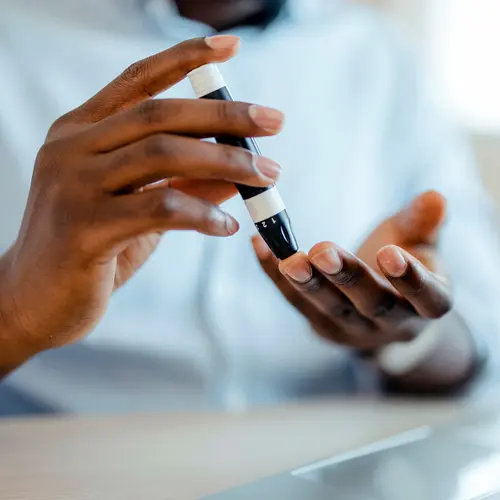From washing your hands to keeping your distance and wearing face masks, everyone needs to take steps to avoid the coronavirus that causes COVID-19. When you have diabetes, it’s important to be really careful.
The Connection Between COVID-19 and Diabetes
People with diabetes aren’t more likely to catch the virus than other people. But you could have more severe illness if you get it.
Having high blood sugar can interfere with your body’s ability to fight an infection. It also can take longer for your body to get better. Some experts believe that viruses may thrive in the body when blood glucose is high.
High blood sugar can affect your immune system, making you more likely to have severe complications if you get sick with the coronavirus.
Your chance of that is lower if your diabetes is under control.
What You Should Be Doing
To lower your chances of getting sick:
- Wash your hands often with soap and water, especially after being in public.
- Keep your distance from other people. Try to stay at least 6 feet away from others.
- Wear a cloth face mask when you're out. Avoid places where people aren't wearing face coverings.
- Try not to touch your eyes, nose, and mouth.
To help keep yourself safe and your diabetes under control:
- Test and track your blood sugar. Take medication or insulin as directed.
- Stock up on prescription medicine, insulin, and testing supplies.
- Clean your testing, infusion and finger-stick sites well with soap and water or rubbing alcohol.
- Stay in touch with your health care team. Keep your regular visits. Call right away if you are worried about your diabetes or you feel sick.
- Take care of your mental health. People with diabetes are up to three times more likely to be depressed than people without it. Do things that make you happy. Check in with family and friends.
If You Get Sick
If you feel like you start getting symptoms of COVID-19 -- like fever, cough, shortness of breath, fatigue, muscle or body aches, sore throat, headache, and loss of taste or smell -- call your doctor. Also remember:
- COVID-19 can raise your blood pressure, Make sure you take your medications as directed. Ask your doctor if you should monitor your blood pressure at home or change the meds you take.
- Check your blood sugar more often if you're sick. Call your doctor if it stays above 250 mg/dL. If your blood sugar falls below 70 mg/dL or your target range, eat 15 grams of simple carbs (juice, hard candy, etc.) and recheck again in 15 minutes to make sure your levels are going up.

